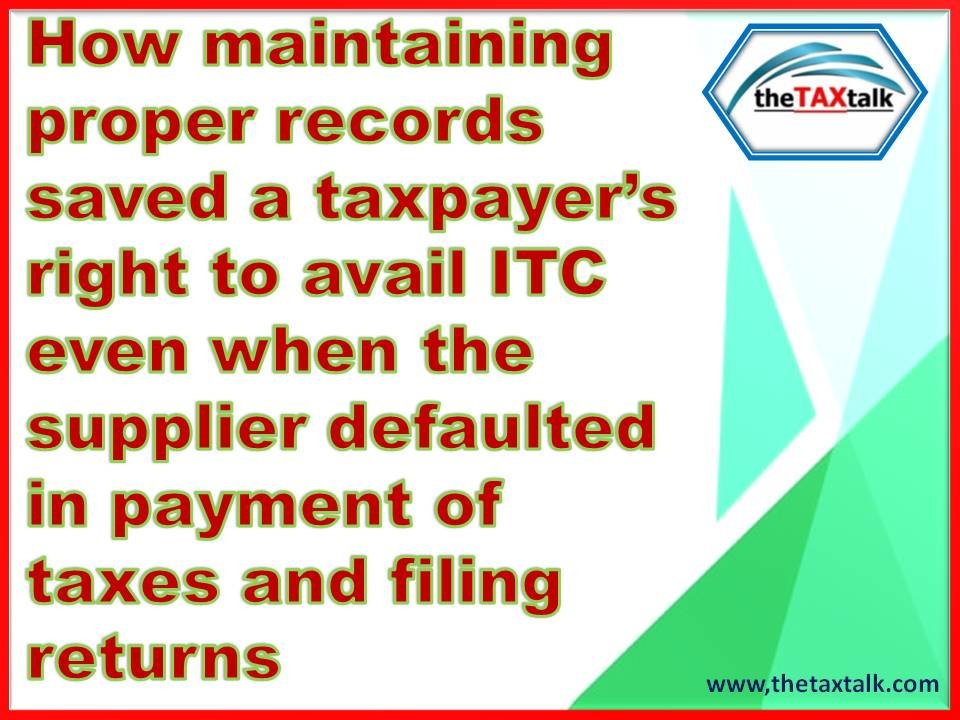![]()
How maintaining proper records saved a taxpayer’s right to avail ITC even when the supplier defaulted in payment of taxes and filing returns
Here is an important case before the Utharkhand High Court – Subhash Singh v. Deputy Commissioner, SGST [Special Appeal No. 100 of 2024 dated May 03, 2024] (Uttarakhand High Court
In this case, Subhash Singh, an iron scrap business owner, faced a demand notice under Section 74 of CGST Act, of Rs. 79,41,598 which was subsequently reduced to reduced to Rs. 19,47,801 in the order dated June 22, 2023 (the “Impugned Order”) due to his supplier’s non-compliance with GST payment. The central issue revolved around whether Subhash Singh could be penalized for the supplier’s failure to pay taxes.
Facts:
1. Records of Purchase Transactions : Subhash Singh had purchased goods from his supplier, maintaining proper invoices and making payments through banking channels, including the applicable GST. These details were meticulously recorded in the Appellant’s books of accounts also.
2. Supplier Default: Unfortunately, the supplier did not deposit the taxes collected from Subhash Singh to the government.
3. Input Tax Credit (ITC): Subhash Singh availed ITC in good faith based on the invoices provided by the supplier. The details of these transactions were meticulously recorded in Subhash Singh’s books of accounts.
Court’s Judgment:
The Uttarakhand High Court analyzed Section 74 of the CGST Act and ruled in favor of Subhash Singh. Here are the critical points:
Due Diligence and Good Faith: The court emphasized that if a purchaser (like Subhash Singh) follows due diligence by maintaining proper invoices and paying GST, they cannot be held responsible for the supplier’s defaults.
Taxpayer not accountable: Since Subhash Singh had fulfilled his obligations, the court modified the order, on condition of depositing 10% of the amount demanded, stating that it was the supplier’s responsibility to file returns and pay taxes and appellant is not accountable for supplier’s default.
Key Takeaways
Purchasers’ Protection: This ruling protects purchasers who act diligently and in good faith. They shouldn’t bear the consequences of supplier negligence.
Supplier Accountability: Suppliers must fulfill their tax obligations promptly to avoid penalizing innocent purchasers.
Remember, this judgment reinforces the importance of compliance, transparency, and meticulous record-keeping in GST transactions.
The copy of the order is as under:


